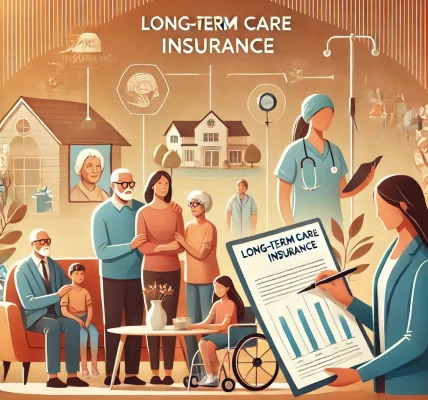Introduction
Health insurance is an essential financial tool that helps individuals manage medical expenses and ensure access to quality healthcare. When selecting a policy, many people face the dilemma of choosing between short-term and long-term health insurance. Understanding their differences, benefits, and limitations can help you make an informed decision based on your specific needs.
This blog explores short-term vs. long-term health insurance, their advantages, and factors to consider when selecting the right plan.
What is Short-Term Health Insurance?
Short-term health insurance is a temporary coverage option designed to provide financial protection for unexpected medical emergencies. It is typically used by individuals who need health insurance for a limited period.
Key Features of Short-Term Health Insurance
- Temporary Coverage: Policies last from 30 days to 12 months, with possible renewals.
- Lower Premiums: More affordable than long-term plans due to limited coverage.
- Basic Medical Services: Covers emergency care, hospitalization, and some doctor visits.
- No Coverage for Pre-Existing Conditions: Does not cover medical conditions that existed before enrollment.
- Limited Preventive Care: Usually does not include wellness checkups or maternity care.
Who Should Consider Short-Term Health Insurance?
- Individuals between jobs or waiting for employer-sponsored insurance.
- Recent graduates who are transitioning to full-time employment.
- People who missed the Open Enrollment Period for long-term health plans.
- Those looking for temporary coverage before enrolling in a long-term plan.
What is Long-Term Health Insurance?
Long-term health insurance provides comprehensive medical coverage for an extended period, usually a year or more. It includes essential healthcare services and protection against major medical expenses.
Key Features of Long-Term Health Insurance
- Comprehensive Coverage: Includes preventive care, doctor visits, hospital stays, prescription drugs, and chronic disease management.
- Higher Premiums: More expensive than short-term plans but provides extensive benefits.
- Covers Pre-Existing Conditions: Provides financial protection for existing medical conditions.
- Long-Term Security: Offers continuous coverage, reducing the risk of coverage gaps.
- Government Subsidies Available: Many long-term plans qualify for financial assistance under the Affordable Care Act (ACA).
Who Should Consider Long-Term Health Insurance?
- Individuals with chronic health conditions requiring ongoing care.
- Families looking for stable and comprehensive coverage.
- Employees without access to employer-sponsored health plans.
- Retirees who are not yet eligible for Medicare.
- Self-employed individuals seeking permanent health insurance solutions.
Short-Term vs. Long-Term Health Insurance: Key Differences
| Feature | Short-Term Health Insurance | Long-Term Health Insurance |
|---|---|---|
| Coverage Duration | 30 days to 12 months | 1 year or more (renewable) |
| Premium Costs | Lower premiums | Higher premiums |
| Coverage Scope | Limited coverage (emergency & hospital care) | Comprehensive coverage (preventive, emergency, and chronic care) |
| Pre-Existing Conditions | Not covered | Covered |
| Prescription Drugs | Limited or not covered | Covered |
| Preventive Care | Usually not included | Covered (annual checkups, vaccinations, screenings) |
| Maternity & Mental Health Services | Not included | Included |
| Renewability | Limited renewal options | Continuous coverage available |
| Best for | Temporary coverage seekers | Individuals needing full coverage |
How to Choose Between Short-Term and Long-Term Health Insurance
When deciding between short-term and long-term health insurance, consider the following factors:
1. Your Health Condition
- If you have pre-existing conditions, long-term health insurance is a better option as short-term plans do not cover them.
- If you are generally healthy and only need temporary coverage, a short-term plan might be sufficient.
2. Budget and Affordability
- Short-term insurance is more affordable but offers limited benefits.
- Long-term insurance has higher premiums but provides comprehensive protection against medical expenses.
3. Employment and Insurance Options
- If you are in between jobs, short-term insurance can serve as a temporary solution.
- If you are self-employed or without employer benefits, a long-term policy may be necessary for continuous coverage.
4. Coverage Needs
- If you require regular medical checkups, chronic disease management, or mental health services, a long-term policy is ideal.
- If you only need emergency coverage for a short period, a short-term plan can work.
5. Government Assistance
- If you qualify for subsidies under the ACA, long-term health insurance may be more affordable.
- Short-term plans do not qualify for subsidies, so you will pay the full cost out-of-pocket.
Pros and Cons of Short-Term and Long-Term Health Insurance
Pros of Short-Term Health Insurance
✅ Affordable premiums ✅ Quick and easy enrollment ✅ Flexible coverage duration ✅ Ideal for short-term coverage gaps
Cons of Short-Term Health Insurance
❌ No coverage for pre-existing conditions ❌ Limited benefits and exclusions ❌ No preventive or mental health care ❌ Not eligible for government subsidies
Pros of Long-Term Health Insurance
✅ Comprehensive medical coverage ✅ Covers pre-existing conditions ✅ Preventive care and prescription drug benefits ✅ Financial security for long-term healthcare needs
Cons of Long-Term Health Insurance
❌ Higher premiums ❌ Requires commitment for at least one year ❌ Complex application and enrollment process
Conclusion: Which Health Insurance is Right for You?
The choice between short-term and long-term health insurance depends on your financial situation, medical needs, and coverage preferences. If you need temporary, low-cost coverage, a short-term health plan may be sufficient. However, if you seek comprehensive, long-term protection, investing in a long-term health insurance policy is the best decision.
Key Takeaway: If you are in transition and need coverage for a limited period, go for short-term insurance. If you need stable and full medical protection, opt for long-term insurance.
Have questions about health insurance options? Drop a comment below, and let’s discuss!




